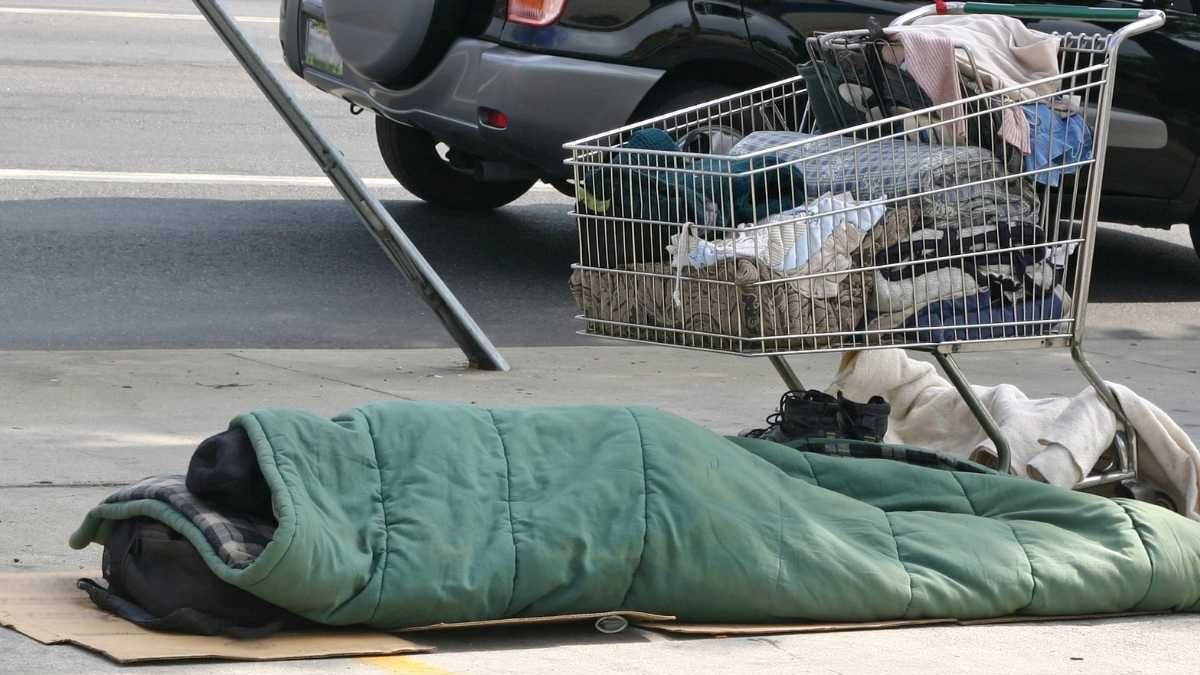The legal modification of the project that allows the compulsory confinement The ban on homeless people will come into effect starting this Sunday after the government finalizes the details this week for its implementation; meanwhile, Luis Lacalle Pou He announced that weekly monitoring will be carried out on those to whom the law applies.
The implementation of the plan compulsory confinement will come into effect as of today, which covers people who live or sleep on the street and who suffer from some type of mental illness. In this way, due to the supposed uncomfortable situation that it generates in the neighbors, these people would be admitted even against their will.
The compulsory hospitalization law came into force and was regulated starting in 2021 and until now, it could be applied to those people who were at risk of death. However, with the modification, it can be applied to people with a mental illness that poses a risk to themselves or to others.
Lacalle Pou’s advance
Yesterday the president Luis Lacalle Pou He spoke about the application of the law starting this Sunday and said that “we must do everything possible, humanely for these people and because socially we all deserve to have a slightly calmer life.” “The new law “has two perspectives, the human being who has an illness, and the neighbors. Peaceful coexistence is what we have to try to do,” he added.
“The law must be complied with, we have no choice. Personally, I have been insisting on this issue for many years and not on a whim, this issue is a request, a plea often from mothers, above all, but from relatives of people who are in some way in danger. homeless situation “Due to their addiction or mental health, many of them commit crimes and end up in prison. There are many people in our country who end up in prison because they were preceded by addiction and family breakdown,” he stressed.
Meanwhile, the president announced that the government will carry out a weekly follow-up of the people to whom the law applies, although he admitted that there are not enough beds for hospitalization in the public health sector, so they will have to make agreements with the private sector.
On the other hand, he also commented that, as this new regulation is close to the current law of infractions, it will be a doctor who certifies if the law of compulsory confinement since the police are not trained to do so. “The police and the police have to work very closely together ASSE, That is why a doctor and sometimes a police officer arrive to find out if it is the law on infractions or the one that was just passed,” he said.
The implementation of compulsory hospitalization
The Minister of Social Development, Alejandro Sciarra, said after the meeting with Luis Lacalle Pou at the Executive Tower this week, that any homeless person may be admitted, even without their consent, in cases where they present a risk to himself or to third parties, due to decompensation due to psychiatric pathology or consumption of psychoactive substances.
In cases where the person does not agree to transfer for hospitalization, the collaboration of the Home Office, He indicated. Once the person is compensated, Mides will be responsible for offering alternatives, such as assisted homes or halfway houses managed by the ministry, depending on the associated pathology.
Sciarra said that “the objective is to safeguard the life and integrity of people living on the streets, in this case, those who have a vulnerability older due to their mental health problems or addictions.”
Meanwhile, the Minister of the Interior, Nicolás Martinelli, clarified that the police officers are trained to deal with this type of situations and that special training is carried out in the National Police School.
The law that generated controversy with the Broad Front
In mid-May, Parliament approved changes to the law on involuntary confinement. homeless peoplean initiative that, until now, did not have the support of the Broad Front, although its support was finally achieved in the vote in the Chamber of Deputies.
With 74 votes in favor of the 83 legislators present, the project that already had its approval in the Senate. The initiative had to return to the House of Representatives due to the modifications that were carried out in the Upper House.
The law establishes that a diagnosis by a psychiatrist is no longer necessary for a homeless person to be admitted to a health center; instead, a general physician’s verification is sufficient to decide on the admission. The law allows the government to admit a person against his or her will if the doctor determines that he or she poses a “risk” to himself or herself or a third party.
The approval was celebrated by the ruling party. “When a doctor certifies that, for example, a problem with the consumption of psychoactive substances can generate a risk for himself or for third parties, that person is taken to a hospital against his will, by the Home Office“, explained the deputy and former Minister of Social Development, Martin Lema.
However, since the Broad Front They questioned the initiative during the debate. “We have people who, despite decades of trying to include them, we were unable to do so. Neither we nor the current government. There are some who do not want to see people living on the streets. Get them out of here. People do not want to see a situation that shows the inequalities of society,” said the deputy. Ana Olivera.
Source: Ambito




